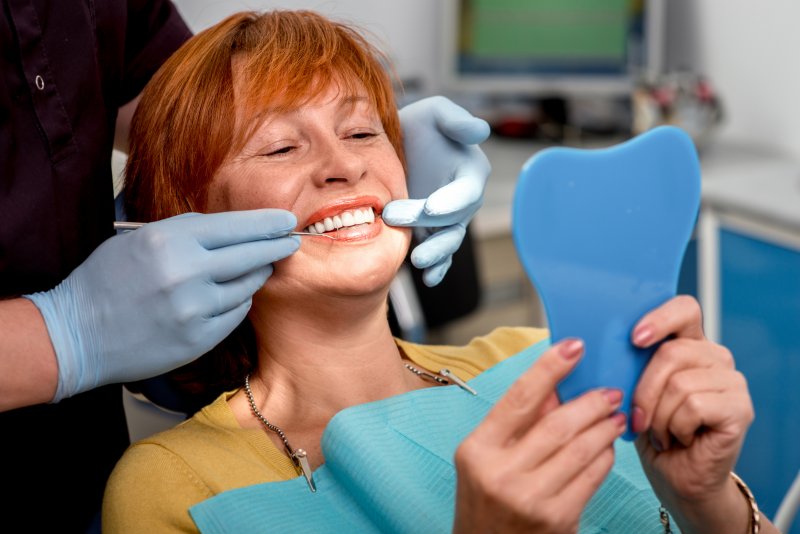
When faced with missing teeth, it makes sense to explore your options for replacement carefully. After all, you don’t want to make a hasty decision only to regret it later. Two common solutions are dental bridges and partial dentures. Each option has its benefits and considerations, so which one should you choose? Read on to delve into the details of both, so you can rest easy with your decision.
What is a Dental Bridge?
A dental bridge is a fixed prosthetic device used to replace one or more missing teeth. It consists of one or more artificial teeth (pontics) held in place by dental crowns that are anchored to the adjacent natural teeth or dental implants.
The Pros and Cons of Dental Bridges
Here are some of the benefits and considerations you can expect from dental bridges:
Pros
- Stability: Dental bridges are fixed in place, providing stability and preventing movement while eating or speaking.
- Ease of Care: Bridges are a fixed solution that can be cleaned just like regular teeth—with some special considerations.
- Implant Possibilities: Dental implants can be used to support a bridge. When this is done, it becomes very stable, keeps the jawbone healthy, and stops resorption.
Cons
- Healthy Adjacent Teeth: Dental bridges require the support of adjacent healthy teeth, which may need to be altered to accommodate the crowns.
- Implants Take a While to Heal: While implant bridges are a more stable option, it does require surgery and significant healing time.
- Maintenance: While bridges are relatively easy to care for with regular brushing and flossing, cleaning underneath the pontic may require special tools.
What are Partial Dentures?
Partial dentures are removable dental appliances designed to replace one or more missing teeth. They consist of artificial teeth attached to a gum-colored base made of acrylic or metal framework, which clasps onto natural teeth for support.
The Pros and Cons of Partial Dentures
Here’s what you can expect from partial dentures, pros and cons:
Pros
- Versatility: Partial dentures can replace multiple missing teeth in different areas of the mouth.
- Cost-Effective: These prosthetics are generally more affordable than dental bridges or implants, making them an accessible option for many patients.
Cons
- Adjustment Period: It may take some time to adjust to wearing partial dentures, especially when speaking or eating.
- Added Maintenance: Because partial dentures are removable, they require extra care and maintenance to ensure they stay clean.
- Bone Resorption: Partial dentures don’t stimulate the underlying jawbone very well. This can lead to bone resorption over time and changes in facial appearance.
So, Which Should I Choose?
Ultimately, the decision between a dental bridge and a partial denture depends on many factors. These include the number of missing teeth, the condition of adjacent teeth, your budget, and personal preferences.
Talking with a dentist is the best way to evaluate your specific needs and figure out the best treatment option. Whether you opt for a dental bridge or a partial denture, restoring your missing teeth can improve your oral health, restore function, and enhance your smile’s looks. So, don’t delay! Contact your dentist today to schedule your tooth loss consultation.
About the Practice
There’s no need to worry about tooth loss if you step into Troisi Dentistry. Dr. Lucia Troisi and Dr. Zane Wayland Berry will ensure that you’re taken care of. Whatever your needs, they can handle them with state-of-the-art dental technology and practiced skills. Call (757) 548-1611 to schedule a tooth loss consultation or visit the website to learn more.
